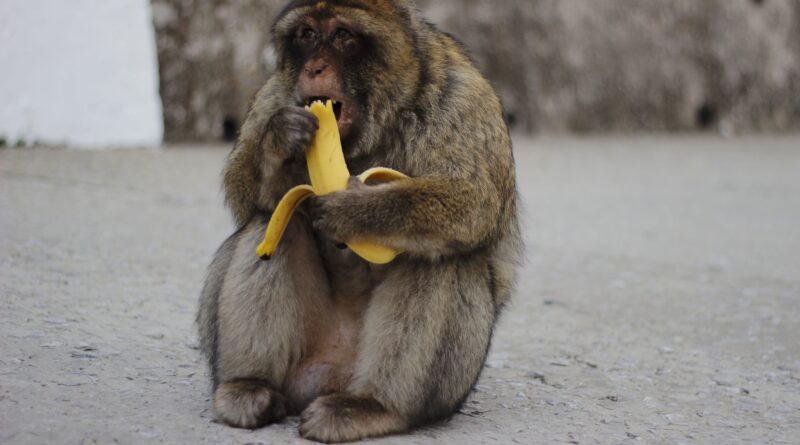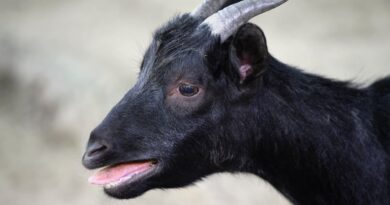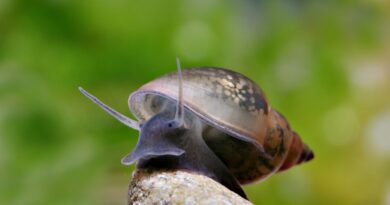Can Monkeys Eat Bananas? The Truth About Their Favorite Snack
Monkeys are often depicted as banana-loving creatures in popular culture. From movies to cartoons, the image of a monkey holding or eating a banana is almost iconic. But how accurate is this portrayal? Are bananas truly their favorite snack? In this detailed article, we explore the truth about monkeys and bananas, diving deep into their dietary preferences, the nutritional value of bananas, and whether feeding bananas to monkeys is actually beneficial or harmful.
The Myth of Monkeys and Bananas
For decades, the association between monkeys and bananas has been prevalent. This connection has sparked curiosity and questions among both animal enthusiasts and casual observers. While it’s true that monkeys are omnivorous and have diverse diets, bananas may not always be the staple food many assume.
In this article, we’ll uncover the origins of this myth, examine monkeys’ natural diets, and reveal whether bananas play a significant role in their eating habits.
What Do Monkeys Naturally Eat?
Monkeys are a diverse group of primates found in various regions of the world. Their diets vary greatly depending on their species, habitat, and availability of food. Below is an overview of their natural dietary habits:
1. Fruits: A Major Component
Many monkey species consume fruits as a primary food source. Fruits provide essential nutrients like vitamins, fiber, and natural sugars. However, their fruit preferences are usually dictated by what grows in their native habitats.
Examples of fruits they eat: Mangoes, figs, guavas, and berries.
Do bananas grow naturally? In most wild habitats, bananas are not a native fruit, especially in regions like Africa and South America where many monkey species reside.
2. Leaves and Flowers
Leafy greens and flowers are often included in the diets of monkeys. These provide additional nutrients like protein and are essential for monkeys living in forested environments.
3. Insects and Small Animals
Monkeys are omnivores, which means they also eat insects, small animals, and even eggs. These foods provide protein and fats that contribute to their overall health.
4. Nuts and Seeds
Seeds, nuts, and grains are also part of their diet, offering healthy fats and additional nutrients.
5. Bark and Roots
In times of food scarcity, some monkeys resort to eating bark or digging up roots for sustenance.
Do Monkeys Eat Bananas in the Wild?
Bananas are a cultivated fruit, primarily grown by humans for consumption. Wild monkeys are unlikely to encounter bananas unless they live near banana plantations or areas where humans discard them.
Wild Monkey Encounters with Bananas
Rare occurrences: Wild monkeys may occasionally find bananas near human settlements.
Curiosity-driven consumption: They might eat bananas out of curiosity but not as a staple part of their diet.
Nutritional Profile of Bananas
Before understanding whether bananas are beneficial for monkeys, let’s analyze the nutritional value of this popular fruit.
1. High in Natural Sugars
Bananas are rich in glucose, fructose, and sucrose, making them an instant source of energy.
2. Packed with Vitamins and Minerals
Bananas contain vital nutrients such as:
- Vitamin C
- Vitamin B6
- Potassium
- Magnesium
3. Fiber-Rich
Bananas are high in dietary fiber, which aids in digestion and bowel movement.
Can Feeding Bananas to Monkeys Be Harmful?
While bananas are generally considered healthy for humans, their impact on monkeys can vary.
1. High Sugar Content
Monkeys are not adapted to handle large amounts of sugar in their diet. Excessive consumption of bananas can lead to:
- Obesity
- Diabetes
- Tooth decay
2. Imbalanced Nutrition
Feeding bananas exclusively to monkeys can result in an unbalanced diet, depriving them of essential nutrients found in other foods.
Why Do Monkeys Eat Bananas in Captivity?
In zoos and animal sanctuaries, bananas are often included in monkey diets, but why?
1. Availability
Bananas are easy to source, making them a convenient choice for caretakers.
2. Palatability
Monkeys enjoy the sweet taste and soft texture of bananas, which makes them an appealing treat.
3. Nutritional Boost
In controlled amounts, bananas can provide quick energy and essential nutrients.
How to Feed Bananas to Monkeys Safely
If you encounter monkeys in the wild or captivity, here are some guidelines for feeding bananas responsibly:
1. Moderation Is Key
Offer bananas as an occasional treat rather than a primary food source.
2. Opt for Unripe Bananas
Unripe or green bananas have lower sugar content, making them a healthier option.
3. Avoid Processed Bananas
Steer clear of feeding monkeys dried, fried, or sugary banana products.
Are Bananas Monkeys’ Favorite Food?
Despite the popular belief, bananas are not necessarily a monkey’s favorite food. Their preferences depend on what is available in their natural habitat and what they are exposed to. In fact, monkeys often prefer other fruits, seeds, or even insects over bananas.
Cultural Portrayals of Monkeys and Bananas
The image of monkeys eating bananas has its roots in cultural and media representations. From children’s books to commercials, the pairing of monkeys and bananas has been used as a marketing tool.
The Impact on Public Perception
While entertaining, these portrayals can lead to misconceptions about a monkey’s natural diet.
FAQs About Monkeys and Bananas
1. Do all monkeys eat bananas?
No, not all monkey species eat bananas. Their diets are shaped by their habitats and the availability of food.
2. Are bananas bad for monkeys?
Bananas are not inherently bad but should be fed in moderation due to their high sugar content.
3. Why do monkeys seem to like bananas?
The sweet taste and soft texture of bananas make them appealing, but they are not necessarily their favorite food.
Conclusion: Separating Fact from Fiction
The association between monkeys and bananas is more a product of human imagination than reality. While bananas can be a part of a monkey’s diet in captivity or near human settlements, they are far from a dietary staple. Monkeys thrive on a diverse diet that includes fruits, leaves, insects, and more.
Understanding the truth about monkeys and their eating habits helps promote better care for them, whether in the wild or captivity. If you ever get the chance to interact with these fascinating creatures, remember to respect their natural dietary needs and avoid overfeeding them with bananas




